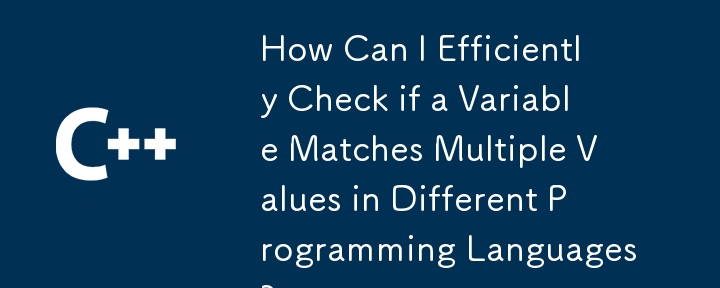

Elegantly handle multi-valued conditional judgments
Many programming languages provide conditional statements to evaluate whether a variable meets one or more conditions. When you need to check whether a variable meets a specific condition, you usually use multiple if statements nested, for example:
<code>if (value == 1) {
// value为1时执行的代码
} else {
if (value == 2) {
// value为2时执行的代码
}
}</code>This approach can become verbose and difficult to maintain when multiple values need to be matched. In SQL, this problem can be solved concisely using the IN operator:
<code class="language-sql">WHERE value IN (1, 2)</code>
In order to implement similar functions in common programming languages, developers usually use some clever tricks or extend the basic library. For example, you can use an array:
<code class="language-csharp">if (new[] { 1, 2 }.Contains(value)) {
// value为1或2时执行的代码
}</code>Another solution is to define an extension method:
<code class="language-csharp">public static bool In<T>(this T obj, params T[] args) {
return args.Contains(obj);
}</code>Using this extension method, you can write like this:
<code class="language-csharp">if (1.In(1, 2)) {
// value为1或2时执行的代码
}</code>These techniques provide a more elegant way to express conditional checks on multiple values, improving code readability and maintainability.
The above is the detailed content of How Can I Efficiently Check if a Variable Matches Multiple Values in Different Programming Languages?. For more information, please follow other related articles on the PHP Chinese website!




